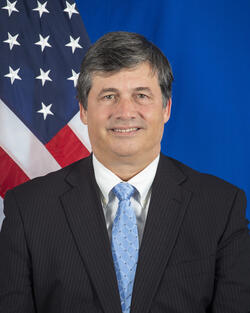Toward a Reasonable Middle Ground in the Oversight of Enhanced Potential Pandemic Pathogen Research | Marc Lipsitch
This event is open only to Stanford faculty, staff, fellows, and students.
Bio:
Marc Lipsitch is Professor of Epidemiology at the Harvard T. H. Chan School of Public Health. He directs the Center for Communicable Disease Dynamics and the Interdisciplinary Program on Infectious Disease Epidemiology. He is an honorary faculty member at the Wellcome Sanger Institute. He is currently on part-time secondment to the US CDC as Senior Advisor for the Center for Forecasting and Outbreak Analytics, for which he was the founding co-director (though this talk is in his personal and academic capacity). His scientific research concerns the effect of naturally acquired host immunity, vaccine-induced immunity, and other public health interventions on the population biology of pathogens and the consequences for human health. In the area of biosafety and biosecurity, he co-founded the Cambridge Working Group, whose efforts led to the US government funding pause on gain-of-function research to enhance potential pandemic pathogens, and he has been writing and speaking on policy issues in this area in both popular and peer-reviewed forums for over a decade. He has authored 400 peer-reviewed publications on antimicrobial resistance, epidemiologic methods, mathematical modeling of infectious disease transmission, pathogen population genomics, research ethics, biosafety/security, and immunoepidemiology of Streptococcus pneumoniae. Dr. Lipsitch is a leader in research and scientific communication on COVID-19. Dr. Lipsitch received his BA in philosophy from Yale and his DPhil in zoology from Oxford. He did postdoctoral work at Emory University and CDC. He is a member of the American Academy of Microbiology and the National Academy of Medicine.
Abstract:
The growing ability of researchers to enhance potential pandemic pathogens' transmissibility or virulence has raised concerns about the risk that such research could lead to a pandemic through accidental or inadvertent release, or that the products of the research, including the knowledge it creates, could facilitate deliberate acts of bioterrorism. An incipient policy process to address these concerns in the mid-late 2010s was interrupted by the COVID-19 pandemic, and attention has recently returned to the topic especially in the US but also internationally. While the White House has been constructing guidance (not released as of this writing in January 2024), the scientific and wider community have reached a state of polarization, with many calling for an outright ban, and others claiming that scientific self-regulation is sufficient. This talk will describe the components of a middle way that acknowledges a legitimate public interest in restricting experiments that could heighten pandemic risks, in the absence of compelling and offsetting public health benefits. It will begin with a historical overview of the issue, consider informative and misleading parallels to the notion of restricting research with pandemic risks, and suggest ways forward to break this deadlock.
All CISAC events are scheduled using the Pacific Time Zone.
William J. Perry Conference Room












